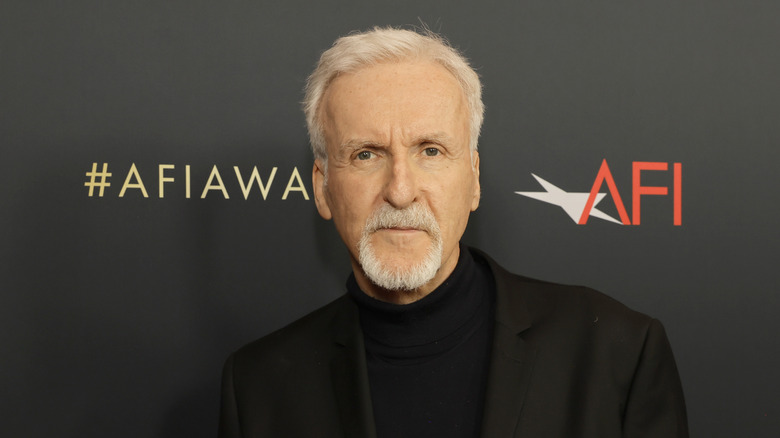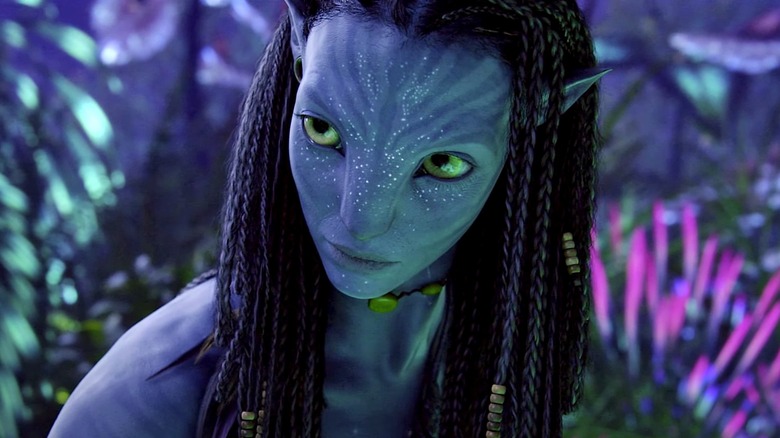James Cameron Didn't Always Envision Avatar As A Franchise
When James Cameron unleashed "Avatar" on the world in the waning days of 2009, he did so after a 12-year absence from the director's chair. He understandably did so under a mountain of expectation, not only because his previous film "Titanic" was a best picture-winning blockbuster for the ages, but also because "Avatar" was being pitched to the cinematic masses as a technological marvel, unlike anything moviegoers had ever seen.
There were doubters, of course, because there always are with Cameron's films. But in the end, "Avatar" became the first film to break the $2 billion dollar mark at the box office. And yes, the sights and sounds on display were the very definitions of awe-inspiring. In true Cameron fashion, the filmmaker took another decade-plus off, returning to cinemas in 2022 with "Avatar: The Way of Water," the first of several already-announced "Avatar" sequels. For some, Cameron's move to return to the world of Pandora with a decade's worth of "Avatar" follow-ups was a bit unexpected. It was also exceedingly logical as the original's box-office take, and its open-ended narrative made it an obvious candidate for a follow-up.
It seems, however, that Cameron did not take his return to Pandora lightly. In fact, the filmmaker insists he initially had no intention of doing an "Avatar" sequel.
The overall success of Avatar changed Cameron's mind about it's franchise potential
Never one to mince words about his cinematic successes, James Cameron has been very candid about his work on the "Avatar: The Way of Water" press tour. And among the many fascinating things he's touched on in regard to the world of "Avatar" is his recent admission to Deadline that he really didn't go into the original film with eyes on setting up a franchise. "It's really interesting," he said, continuing, "You know, when we did the first "Avatar," we didn't really see it as a start of any bigger story."
That's hard to believe given the sheer scope of "Avatar" and its lack of narrative finality, not to mention Cameron's uncanny track record with sequels. But Cameron goes on to admit the first film succeeded so completely, it led him to start thinking about how to continue the story. So, too, did the overwhelmingly positive reactions "Avatar" earned from indigenous peoples, who seized on the film as a fantastical reflection of their own historical tribulations. As Cameron told Deadline, "We are a combination of the success of the first film, not only financially, but in terms of its global message, and the amount of excitement that it generated within the indigenous community around the world."
In the end, it seems the unprecedented, almost magical success of "Avatar" led Cameron to re-open the world for further narrative exploration. And with "Avatar: The Way of Water," recently crossing the $2 billion mark itself, Cameron continues to prove himself as Hollywood's most legit magic man.

